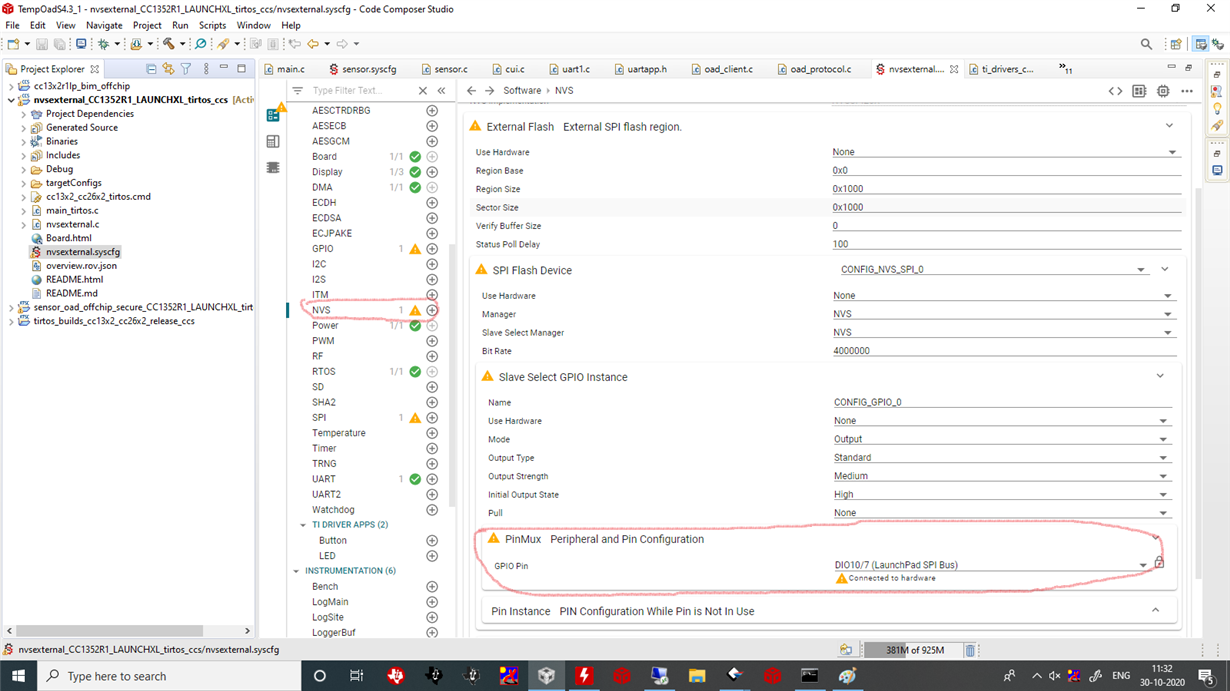Other Parts Discussed in Thread: SYSCONFIG
Hi,
I am using SDK CC13x2_26x2_sdk_3_30_00_03 sensor_oad _offchip_ secure example. I tested this example with the launchpad, an external flash is working fine.
In Custom board we are using Mx251635FZUIL0 flash and flash is connected to IOID_20(MOSI), IOID_19(MISO), IOID_17(SPI_clk), IOID_10(CS) pins. To test with a custom board I configured SPI with these gpios
using CC1352R1_LAUNCHXL.h file.
External flash is not working with a custom board, getting NVS_STATUS _ERROR.
Why external flash is not working with external flash??


